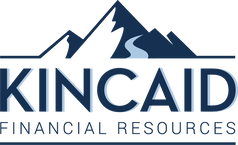Not Your Parents’ RetirementThe world has changed significantly in the past few decades. Thirty years ago, there weren’t cell phones. Computers weren’t widely owned. There was no Uber or Airbnb. Social media was unheard of and virtual reality was the stuff of science fiction.
The world changes quickly, and not just in terms of technology. Retirement has changed significantly in the past few decades as well. The next generation of retirees will face challenges that previous generations didn’t face. The good news is that you can overcome these potential challenges if you plan ahead. Below are a few ways in which retirement has changed over time. Do you have a strategy to address these challenges? If not, now may be the time to develop one. As financial professionals we can help you get started. Longevity People are living longer than ever. Usually, that’s a good thing, but a long lifespan can create financial challenges. According to the Society of Actuaries, today’s retirees can plan on a long lifespan. They estimate that a 65-year-old couple has a 50 percent chance of one spouse living to age 94 and a 25 percent chance of one spouse living to 98.1 If you retire in your mid-60s, there’s a chance your retirement could last 30 years. That means you’ll need your assets and your income to last that long. That could be difficult, especially if you overspend in the early years of retirement. Income Sources There was a time when retirees could count on income from Social Security and an employer defined benefit pension to fund their retirement. Those days are long gone. Defined benefit pensions are quickly disappearing from employer benefit options. In fact, the percentage of Fortune 500 companies that offer defined benefit pensions has dropped from 59 percent in 1998 to 16 percent in 2017.2 While you can likely count on Social Security income, it may not be enough to fund a full retirement. That means you may need to take withdrawals from your savings and investments to generate income. You’ll likely need an income strategy to make sure your savings lasts through a long, fulfilling retirement. Health Care Health care costs have risen dramatically in recent decades. Medicare helps cover some of those costs, but it doesn’t cover everything. In fact, Fidelity estimates that the average retiree will spend $285,000 out-of-pocket on healthcare.3 That figure is above and beyond what is covered by Medicare, and includes things like premiums, deductibles, copays and more. How do you plan for high out-of-pocket healthcare costs? One effective strategy is to budget for them. You also may want to consider an investment strategy that generates enough income to cover potential health care costs. Complexity Retirement income. Healthcare costs. Budgeting. Longevity. How do you plan a retirement strategy that considers all these potential challenges and more? For many retirees, the complexity of managing these issues is the real challenge. Fortunately, you can address retirement issues head-on by developing a personalized retirement income plan. A retirement plan can help you project your income, budget your spending, and make sure that your assets last as long as you need them to. Ready to plan for a 21st-century retirement? Let’s talk about it. Contact us today at Kincaid Financial Resources. We can help you analyze your needs and implement a plan. Let’s connect soon and start the conversation. You can reach us here. 1https://www.fidelity.com/viewpoints/retirement/longevity 2https://www.planadviser.com/mere-16-fortune-500-companies-offer-db-plan/ 3https://www.fidelity.com/viewpoints/personal-finance/plan-for-rising-health-care-costs\ This information is designed to provide a general overview with regard to the subject matter covered and is not state specific. The authors, publisher and host are not providing legal, accounting or specific advice for your situation. By providing your information, you give consent to be contacted about investments and potential insurance products as deemed appropriate by a licensed fiduciary. This information has been provided by a Licensed Insurance Professional and does not necessarily represent the views of the presenting insurance professional. The statements and opinions expressed are those of the author and are subject to change at any time. All information is believed to be from reliable sources; however, presenting insurance professional makes no representation as to its completeness or accuracy. This material has been prepared for informational and educational purposes only. It is not intended to provide, and should not be relied upon for, accounting, legal, tax or investment advice. This information has been provided by a Registered Investment Advisor and Licensed Insurance Professional and is not sponsored or endorsed by the Social Security Administration or any government agency. Advisory services offered through ChangePath, LLC, a Registered Investment Adviser with the SEC. ChangePath, LLC and Kincaid Financial Resources are unaffiliated entities. 19094 - 2019/8/1
0 Comments
Leave a Reply. |
Categories
All
Archives
February 2021
|
Advisory Services offered through CreativeOne Wealth, LLC a Registered Investment Adviser. CreativeOne Wealth, LLC and Kincaid Financial Resources are unaffiliated entities.
Licensed Insurance Professional. We are an independent financial services firm helping individuals create retirement strategies using a variety of investment and insurance products to custom suit their needs and objectives. Investing involves risk, including the loss of principal. No Investment strategy can guarantee a profit or protect against loss in a period of declining values. Any references to protection or lifetime income refer to fixed insurance products, never securities or investment products. Insurance and annuity products are backed by the financial strength and claims-paying ability of the issuing insurance company.
The information is not intended to be investment, legal or tax advice. The agent can provide information, but not advice related to social security benefits. The agent may be able to identify potential retirement income gaps and may introduce insurance products, such as an annuity, as a potential solution. For more information, contact the Social Security Administration office, or visit www.ssa.gov.
Licensed Insurance Professional. We are an independent financial services firm helping individuals create retirement strategies using a variety of investment and insurance products to custom suit their needs and objectives. Investing involves risk, including the loss of principal. No Investment strategy can guarantee a profit or protect against loss in a period of declining values. Any references to protection or lifetime income refer to fixed insurance products, never securities or investment products. Insurance and annuity products are backed by the financial strength and claims-paying ability of the issuing insurance company.
The information is not intended to be investment, legal or tax advice. The agent can provide information, but not advice related to social security benefits. The agent may be able to identify potential retirement income gaps and may introduce insurance products, such as an annuity, as a potential solution. For more information, contact the Social Security Administration office, or visit www.ssa.gov.


 RSS Feed
RSS Feed
